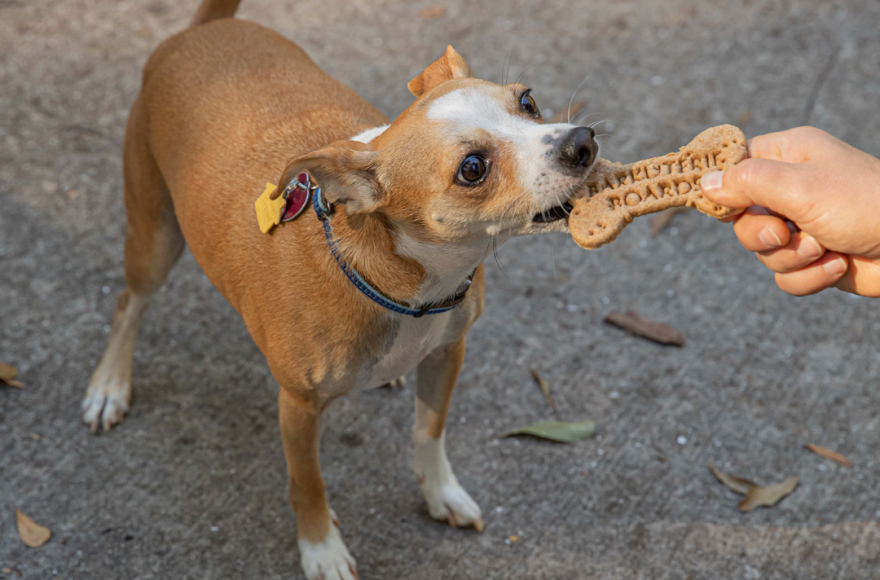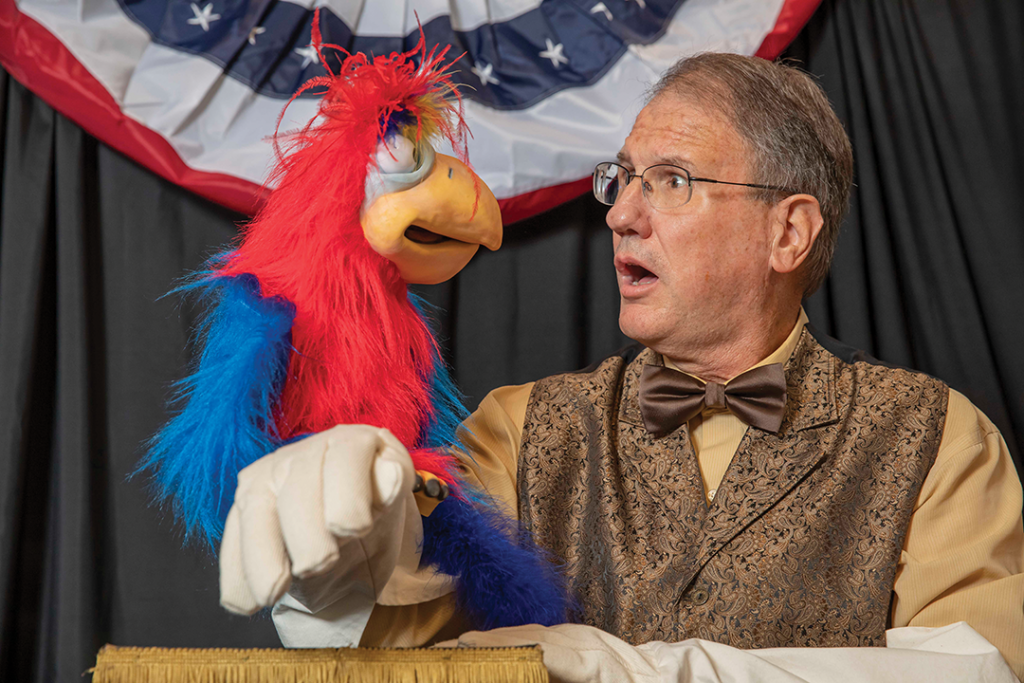Amanda Yu-Nguyen was unexpectedly bitten by the entrepreneurial bug and has since turned what she first passed off as an insignificant idea—charcuterie boards for dogs—into a burgeoning business that has impacted the lives of countless four-legged friends across the country.
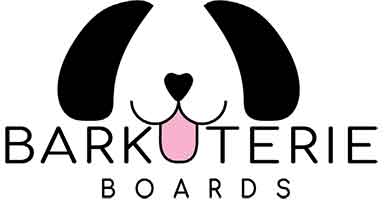
In a world where doggie day spas, Louis Vuitton pet carriers, and sapphire-encrusted collars exist, its time had come: charcuterie for dogs.
Those who have been to a party recently have probably eaten from a charcuterie board. The word “charcuterie” originated in France and describes the art of preparing and assembling meats, cheeses and other types of food into artful designs. Amanda Yu-Nguyen and her husband, Tony, were enjoying such a spread one day when the avid dog lover had an idea.
People love their meat and cheese boards,” she said. “What if we made one for dogs?”
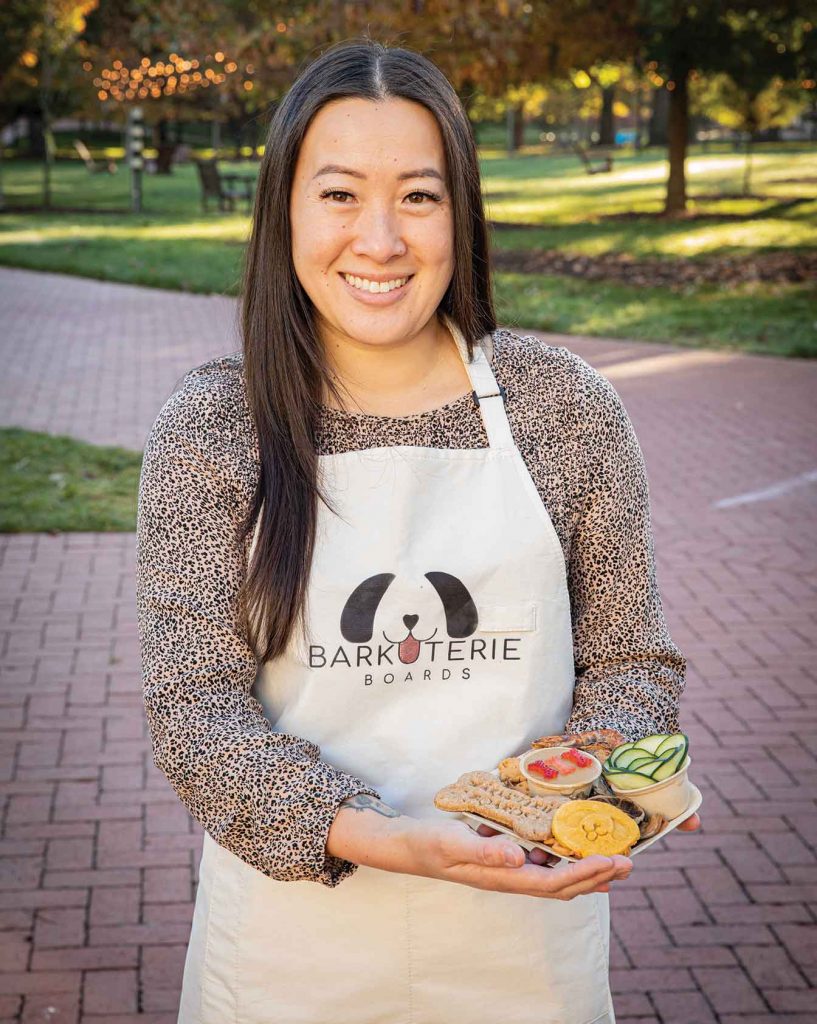
After her husband responded enthusiastically to the idea, Yu-Nguyen texted her sister in Cleveland to ask what she thought.
“She loved it—and replied in all caps,” she said, “so I thought, ‘Maybe this is a thing.’”
Although Yu-Nguyen had never thought of herself as an entrepreneur—she works as the director of the Center for Healthy Living at Oxford College—she jumped right in on designing dim sum baskets and other creative “barkuterie” boards for her own dogs, Tokyo and Nali.
“Tokyo is a husky-shepherd mix, and we call Nali our generic farm dog. She’s probably a collie-lab mix, but we haven’t done DNA testing to find out for sure,” Yu-Nguyen said. Her dogs are named for two places the Yu-Nguyens have visited: Tokyo and Denali, Alaska.
“Sometimes people bring their dogs when they pick up boards. I’ve connected to other dog parents and small businesses that I’d never have met otherwise.”
Amanda Yu-Nguyen
Although Barkuterie sounds like something exclusively for the canine elite, Yu-Nguyen’s heart remains geared toward providing healthy snacks for every dog to enjoy.
“I’ve found that there are many ways we express love for our pets. We like giving them things that are for humans,” she said. “I’ve been reflecting a lot about how hard it’s been to live through the pandemic and how being able to come home to our pets, who love us unconditionally, has done so much for our mental health and well-being. We recognize that our dogs have been there for us and they deserve something special.”
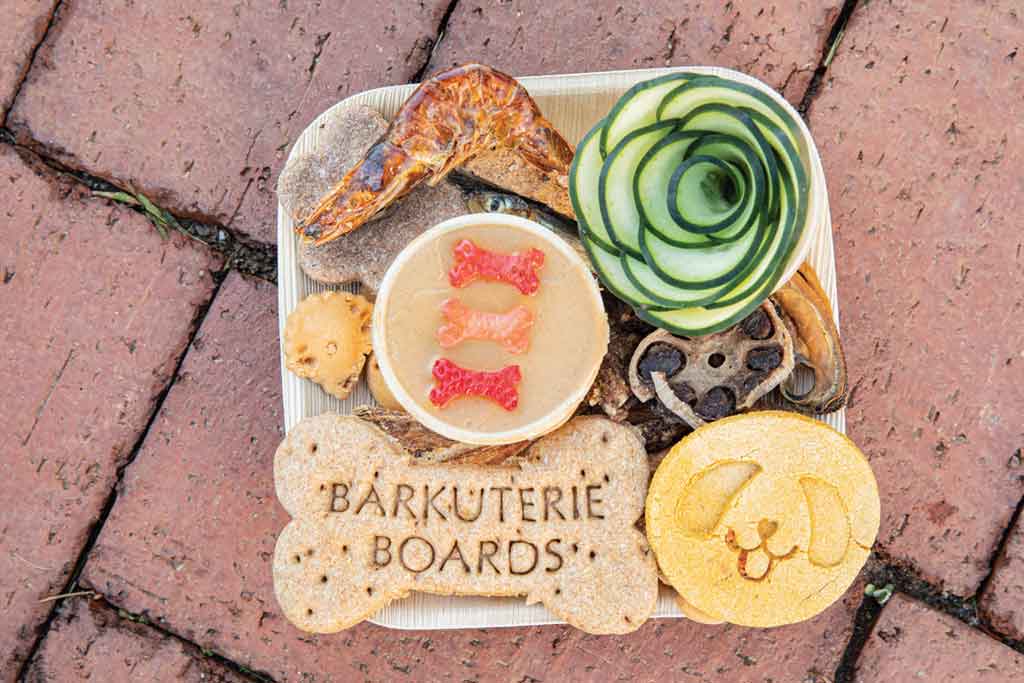
Yu-Nguyen’s Barkuterie boards include a mix of dried treats and preservative-free baked snacks, such as antelope jerky, dried shrimp and grain-free peanut butter discs. Locally delivered boards add fresh produce, including strawberry flowers and cucumber roses that Yu-Nguyen creates by hand. Customers can even personalize the board with their pet’s name made from cheese letters. While the fruits and vegetables come from local supermarkets, Yu-Nguyen has a wide range of suppliers for other Barkuterie board ingredients. She admits she is quite selective in choosing her pet treat sources.
“This is my child, my baby, and I’m very passionate about it,” she said. “The learning curve has been steep. The more I’ve learned, the more I understand about how pet foods aren’t regulated like human foods. I only support businesses that have gone through the regulation processes. They really have to go through a lot.” Yu-Nguyen committed to partnering with eco-conscious businesses and buys locally whenever she can. “I source regional if I can’t get local products, because it’s a lower carbon footprint for shipping,” she said. “As an Asian woman, it’s also important to me to buy from woman-owned or BIPOC (Black, Indigenous and People of Color)-owned businesses. I like knowing the people who make the food I buy.”
Yu-Nguyen’s love for animals certainly influences where Barkuterie Board’s treats come from. She thoroughly researches each potential vendor and sources ingredients from regenerative farms whenever possible. Regenerative agriculture is more encompassing than organic farming and focuses on practices that preserve the health of the ecosystem as a whole. Humane treatment of livestock is one of the concepts it embraces.
“I always think about finding places I can source from who use humane practices,” Yu-Nguyen said. She was relieved to find a venison distributor who sends representatives out into the hunting field to certify that the deer was procured in a humane way.
Barkuterie Boards’ customers admire Yu-Nguyen’s attention to detail. She started taking orders for boards in January 2021, mostly from people she knew. On April Fool’s Day, the New York Times featured Yu-Nguyen in an article about this new trend in canine cuisine.
“I woke up to a flood of emails and texts asking me if I ship,” Yu-Nguyen said. “I started shipping in June and have now sent over 200 packages to over 30 states.”
Because of her full-time position at Emory, Yu-Nguyen has kept Barkuterie Boards a weekend-only job from the beginning. In fact, she still only makes local delivery and pick-up appointments on Saturdays and Sundays. Although business continues to boom, Yu-Nguyen considers sales figures just one part of her definition of success.
“The community aspect is so important to me,” she said. “Sometimes people bring their dogs when they pick up boards. I’ve connected to other dog parents and small businesses that I’d never have met otherwise. The dog community in Atlanta is so wonderful. Leaning on your community, building relationships—that’s been the best.”
Click here to read more stories by Kari Apted.

